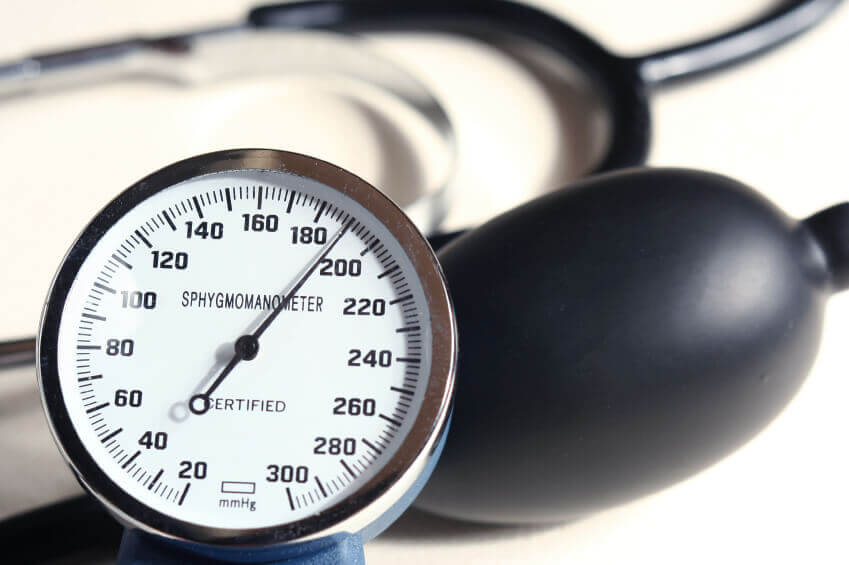High blood pressure, or hypertension, is a common medical condition that results in the long-term blood force against artery walls, and it’s enough to cause specific health issues, including a heart disease. Basically, blood pressure is defined by the amount of blood pumped by your heart and resistance to the blood flow in arteries. The more blood the heart pumps, the narrower the arteries are and the higher the blood pressure is.
Unfortunately, many people may have hypertension for a long time with no symptoms at all, but damaging their heart and blood vessels continues and becomes easy to detect. Uncontrolled hypertension increases the risk of developing severe medical problems, including strokes and heart attacks. It develops gradually and affects many people, so that it’s important to talk to doctors to learn how to control it.
List of Common Symptoms
Most patients who have hypertension have no clear symptoms or signs, even if their blood pressure readings reach quite high levels. Some of them may have regular headaches, nosebleeds, shortness of breath, while others don’t notice any suspicious signs. These symptoms are not specific and they may not occur until people’s blood pressure reaches its life-threatening and severe level.
When to Visit Doctors

It’s likely that blood pressure will be taken as a part of a routine medical checkup. You should ask your physician to take special readings on a regular basis starting at 18 years old. For those patients who are 40 and older or if they have a high risk of developing hypertension, this step should be taken more often. If you don’t see your doctor regularly, feel free to get special screening or use machines to measure blood pressure, but keep in mind that the accuracy of these devices depends on a few important factors, including their cuff size.
Main Causes of Hypertension
First, you should understand that there are 2 types of this medical condition:
- For many adult patients, there is no clear cause of high blood pressure, and this type often develops gradually, so that this process may take many years.
- Some patients have this medical condition caused by specific underlying conditions, and this type appears suddenly and causes higher blood pressure levels than the first one
There are different meds and health conditions that may lead to its development, such as:
- Kidney issues;
- Thyroid problems;
- Adrenal gland tumors;
- Obstructive sleep apnea;
- Different congenital defects in blood vessels;
- The use of illegal drugs, including amphetamines and cocaine;
- Medications, including cold remedies, birth control pills, pain killers, decongestants, etc.;
- Alcohol addiction.
Different Risk Factors
High blood pressure is associated with a number of risk factors, such as the following:
- The risk of having hypertension increases as people age. When it comes to middle age, this health condition is common in male patients, while women are more likely to have it after 65.
- Family history. It’s true that hypertension tends to run in families.
- It’s also common among black people often developing at their earlier age, than in white people. Besides, such severe complications as heart attacks, strokes and kidney failures are also more likely to affect them.
- The more patients weigh, the more blood they need to supply enough nutrients and oxygen to their body tissues. When the volume of blood that circulates through blood vessels increases, the same effect is caused by pressure on the artery walls.
- Lacking enough exercises. Those people who stay inactive tend to have increased heart rates. The higher these rates, the harder their hearts need to work with every contraction and the stronger the force on their arteries. Don’t forget that lack of exercises increases the risk of being obese.
- This harmful habit raises blood pressure temporarily, and it also damages the lining of artery walls. This is what causes them to narrow, thus, increasing blood pressure more and more.
- Too much salt in your everyday meals. It can make the body retain fluids and increase blood pressure, too.
- Too little vitamin D and potassium in your diet. Potassium helps you balance the right amount of sodium in body cells, so if you don’t get enough of it, you will start accumulating too much sodium. Vitamin D may affect the enzymes produced by kidneys that have an impact on blood pressure levels.
- Drinking alcohol. Heavy drinking damages the heart and affects blood pressure, so that people should drink alcohol in moderation.
- Regular stress. Its high levels lead to increasing blood pressure temporary, but it’s not advisable to relax by smoking, drinking alcohol or eating more.
- Chronic medical conditions. Such ailments as diabetes, kidney diseases and sleep apnea are also responsible for increasing the risk of developing hypertension. It’s interesting that pregnancy may contribute to high blood pressure, too.
Possible Complications
Excessive pressure on artery walls as a result of hypertension can damage body organs and blood vessels. The higher the blood pressure and the longer it remains uncontrolled, the greater this damage.
This means that uncontrolled hypertension can lead to such health complications as the following:
- Strokes and heart attacks. Hypertension may cause the thickening and hardening of arteries or atherosclerosis.
- High blood pressure may cause blood vessels to bulge and weaken, thus, forming this disease, which can be life-threatening.
- Heart failures. Heart muscles thicken when pumping the blood against higher pressure in the vessels. That’s why muscles start having hard times to pump enough blood to meet the body’s needs.
- Narrowed, thickened and torn blood vessels in your eyes that may result in unwanted vision loss.
Narrowed or weakened blood vessels in kidneys that prevent these important body organs from functioning normally.
Research by My Canadian Pharmacy Group – www.mycanadianpharmacymall.com







